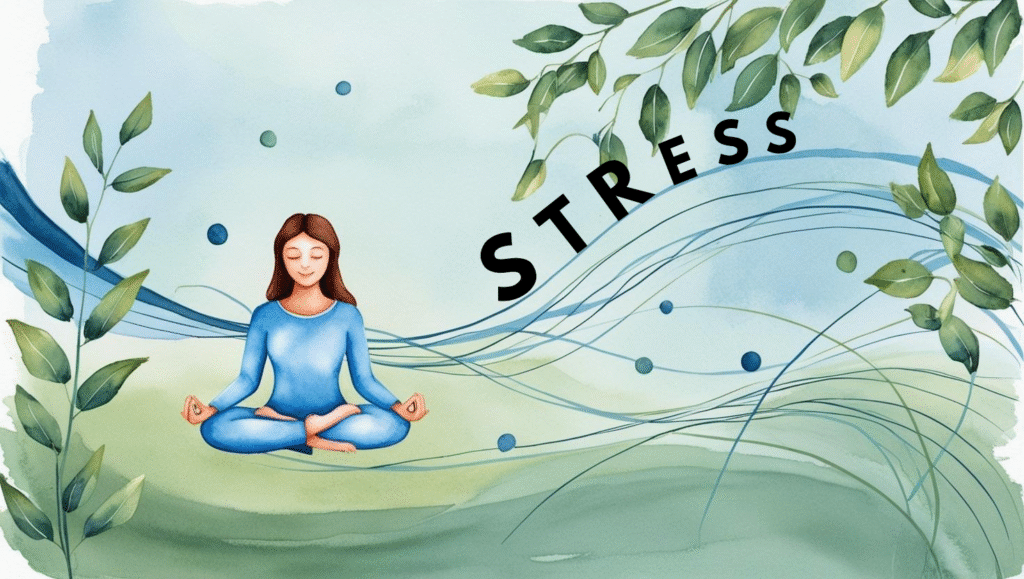Effective Stress Management Techniques for a Balanced Life

- Effective Stress Management Techniques for a Balanced Life
- Introduction
- Understanding Stress
- Proven Stress Management Techniques
- 1. Physical Activity
- 2. Mindfulness and Meditation
- 3. Healthy Lifestyle Choices
- 4. Time Management
- 5. Social Support
- 6. Expressive and Creative Outlets
- 7. Cognitive Behavioral Techniques
- 8. Self-Care and Relaxation
- Building Resilience for Long-Term Stress Management
- When to Seek Professional Help
- Conclusion
Introduction
Stress is an inevitable part of modern life. Whether it’s work deadlines, family responsibilities, or unexpected challenges, everyone experiences stress at some point. While a certain amount of stress can motivate us, chronic or unmanaged stress can harm our physical health, emotional well-being, and overall quality of life. The good news: with the right strategies, you can manage stress effectively and maintain balance-even in a fast-paced world.
Understanding Stress
Stress is the body’s natural response to perceived threats or demands. It triggers the “fight-or-flight” response, releasing hormones like cortisol and adrenaline. While this response can be helpful in short bursts, ongoing stress can lead to anxiety, sleep problems, weakened immunity, and even chronic diseases.
Recognizing your stress triggers-such as heavy workloads, tight deadlines, or conflicts-is the first step in managing them.
Proven Stress Management Techniques
1. Physical Activity
Regular exercise is one of the most effective ways to reduce stress. Physical activity lowers stress hormones, releases endorphins (natural mood boosters), and improves sleep quality. Activities like walking, running, swimming, yoga, or cycling can significantly improve stress levels.
Tip: Aim for at least 30 minutes of moderate exercise most days of the week.
2. Mindfulness and Meditation
Mindfulness means focusing your attention on the present moment without judgment. Practices like meditation, deep breathing, and progressive muscle relaxation calm the mind and body, reduce anxiety, and improve emotional regulation.
- Deep Breathing: Try techniques like diaphragmatic breathing or the 4-7-8 method.
- Progressive Muscle Relaxation: Tense and relax muscle groups to release tension.
- Guided Imagery: Visualize peaceful scenes to promote calmness.
3. Healthy Lifestyle Choices
- Prioritize Sleep: Quality sleep is essential for stress recovery. Maintain a regular sleep schedule and create a restful environment.
- Eat a Balanced Diet: Nutritious foods support stable energy and mood. Avoid excessive caffeine and sugar.
- Limit Screen Time: Unplug from digital devices, especially before bedtime, to improve sleep and reduce stress.
4. Time Management
Organizing your tasks and setting realistic goals can help you feel less overwhelmed. Break large projects into smaller steps and prioritize what truly matters. Take short breaks throughout the day to refresh your mind.
5. Social Support
Connecting with friends, family, or colleagues provides emotional support and a sense of belonging. Sharing your feelings can reduce stress and help you gain perspective.
6. Expressive and Creative Outlets
- Journaling: Writing about your thoughts and feelings helps process emotions and gain clarity.
- Art and Music: Engaging in creative activities like painting, drawing, or playing music can be therapeutic and relaxing.
7. Cognitive Behavioral Techniques
Cognitive Behavioral Therapy (CBT) helps identify and change negative thought patterns that contribute to stress. Techniques like cognitive restructuring, self-monitoring, and problem-solving can be practiced with a therapist or through self-help resources.
8. Self-Care and Relaxation
Make time for activities you enjoy, whether it’s reading, gardening, or spending time in nature. Self-care isn’t selfish-it’s essential for resilience and well-being.
Building Resilience for Long-Term Stress Management
Resilience is the ability to adapt to and recover from stress. You can strengthen resilience by:
- Practicing positive thinking
- Learning from past experiences
- Maintaining strong social connections
- Setting achievable goals
When to Seek Professional Help
If stress feels overwhelming or leads to anxiety, depression, or physical symptoms, consider seeking help from a mental health professional. Therapy, counseling, or stress management programs can provide personalized support43.
Conclusion
Managing stress is not about eliminating it entirely, but about developing healthy coping strategies and building resilience. By incorporating physical activity, mindfulness, healthy habits, and social support into your daily routine, you can reduce stress and lead a more balanced, fulfilling life.
Remember: Small changes, practiced consistently, can make a big difference in your well-being.





